We have written and optimized – for our own blog or other pages – thousands of articles and SEO friendly blog posts in the last 10 years. What better way to learn from past successes and mistakes? We’d like to share them with you, not just as a holiday gift, but mostly because sharing our insights with others is what makes us and the people around us stronger and more resilient.
Google’s rules and updates changed way too many times to be worth counting and the content writers on this blog have changed a lot as well, trying to uncover Google’s mystery box. We’ve lost weight, hair, nerves, and money in the process but believe us, we have learned a lot and most of the times the hard way.
So, we’re going to expose ourselves in a vulnerable matter; yet, if this article saves you from repeating some mistakes we did, we declare ourselves happy. 🙂
The end of the year is usually a time to reminisce and reflect on the time that has passed and hopefully extract some amount of wisdom – no matter how small – to take into the new year. For many of us, 2021 will be different, since we’ve likely had to go through this exercise a lot earlier than the end of the year.
So, we decided to look even further back, in hopes that the lessons we find will speak to something greater than the general terribleness of this year.
We’ve run an SEO blog for ten years now. And we’ve learned one or two things along the way. Here are 13 of them (yes 13, in 2020):
- Optimize Everything from URLs to Conclusions
- Don’t Assume Anything! Check Grammar, Facts, Quotes
- Being Consistent Is Difficult. It’s Also the Key to Success
- Originality Is Good, but so Is Content Update
- Google Algorithms Come and Go, Quality Content Stays
- Creativity Is A Lot of Hard Work
- Questions Are More Useful than Answers
- Forget Academic Writing
- Solve Your Readers’ Problems, not Your Dilemmas
- The Title of the Article Will Influence Its Performance
- Write Less but Write Better
- Write Less, Promote More
- Stick to Your Principles
Optimize Everything from URLs to Conclusions
I know, you already got this: you know that you need to have well optimized content, meaning that you need to use your targeted keyword within the title once and the body content at least ten times and Google will have no other choice than rank your content. And if it doesn’t, well, we all know that Google sucks so, it’s their fault.
Of course, this is an exaggeration. But it has a grain of truth in it.
As search marketing changed, we have evolved as well as learned what both our readers and Google expect from us.
We all know that optimized content is the key to success. But optimization shouldn’t stop at the body of the content. You should also optimize:
- The Title
- The URL
- The Meta Description
- The Slug
- The Images
- The Internal Links
- The Outbound Links
- The Text Length
- The Article Main Image
We used to overlook some of these items. Or, at least we did not give them the right importance. This is how we ended up with URLs like this: https://cognitiveseo.com/blog/26/the-best-link-building-blogs-experts-and-their-tutorials-from-2011/ or with three articles published one after another having the titles: How to Get Links, How to Earn Links and How to Acquire Links.
You’ll find plenty of material on this blog on how to optimize all of those reminded above, so we won’t insist too much here. But here are some resources you might find useful:
SEO Writing for Copywriters
Internal Linking Strategy
Title & URL Influence on Rankings Research
Link Building Campaigns
How to Write SEO Friendly Titles
Don’t Assume Anything! Check Grammar, Facts, Quotes
Do you know what Euripides and my manager have in common? They are both stuck in my head repeating this sentence: Question everything!
While this might be an obvious one, take a sincerity test: when was the last time you double or triple checked a well-known fact? Even the basic ones like: cracking your knuckles will give you arthritis or Eskimos have dozens of words for snow. You know this, so you use them in your content without checking them again.
Whether it’s a well-known SEO fact, a very famous quote or an obvious grammar rule, double check it.
Some time ago we published an article that talked about Wikipedia and whether advertising can be made on the big encyclopedia’s site. And as an example, we offered Gibraltar.
We were super excited about the article and we thought it would stir a lot of controversies. And it did. Yet, the apple of discord wasn’t whether you can inject advertising, but whether Gibraltar is a country or not. It is a territory disputed between UK and Spain, we knew that, but we assumed that if it has its own capital and currency, it must be a country. Well, it’s not and we had to stop and moderate the comments section due to this issue. We changed the screenshot and transformed “country” into “territory” but, too little too late.
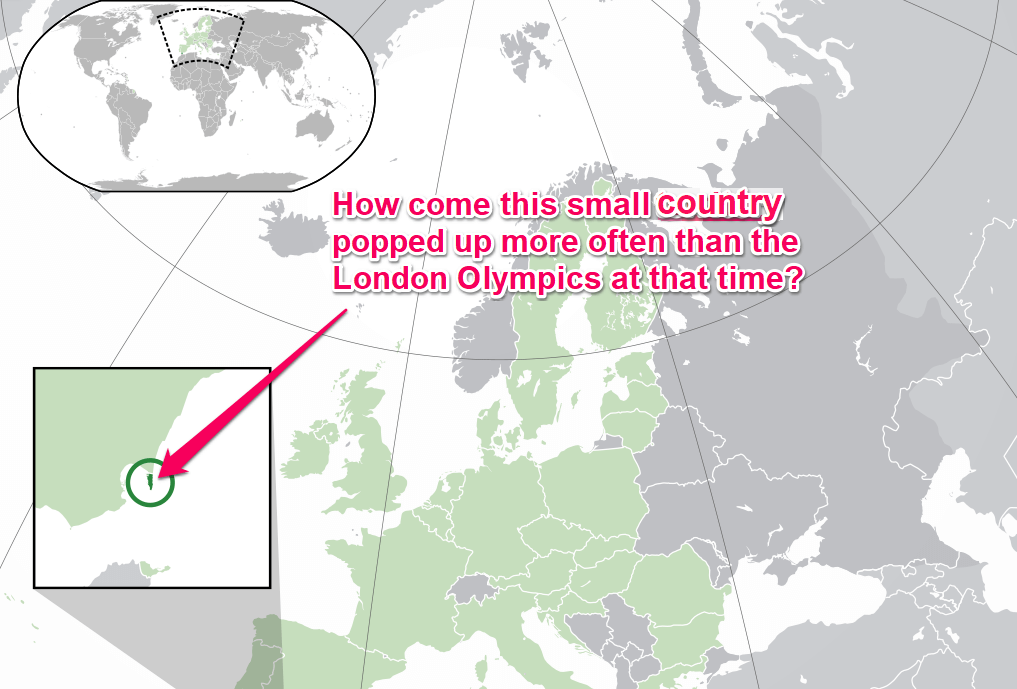
We also had our share of “grammar shaming” from our users. Some more years ago, we published a few pieces (that we assumed were written correctly from a grammar point of view) and we got some emails from our readers that weren’t so flattering.
We had spent so much time in doing research, documenting and reading a lot, and what people noticed first were the grammar mistakes.
Of course, we were proud enough to assume that we knew grammar, and that it wasn’t what should have mattered first. But a few emails from our users later, we decided to collaborate with an English teacher. And that was one of the best decisions we took.
When it comes to grammar, things are a bit tricky, we know. If your first language is not English, chances are you’ll need someone to look over your content. At least in the beginning, to give you some guidance. Even if you’re one of those who goes overboard when correcting grammar mistakes, a fresh eye is always a good idea.
Because you want your articles, your research, your blog to become an authority in your market, and this would be almost impossible with typos or style errors in your masterpiece.
If someone else is checking your work, that doesn’t make you less of a content writer or copywriter. It will make you a better one.
Being Consistent Is Difficult. It’s Also the Key to Success
Ever wondered why so many TV shows which go on forever sooner or later have a significant drop in quality?
Coming up with a good idea can happen to any of us. Coming up with a good idea every week for years and years? That takes more than creativity.
It takes hard work and discipline and accepting the fact that some weeks it’s going to be a lot harder than others. But the important thing is to keep going and keep wanting to put out good work. Things aren’t always going to be in a straight line. Difficult times are followed by better ones. And sometimes the best rewards come after a period of struggling and pushing through.
Do you see the screenshot below? It’s a pretty nice growth, isn’t it? It’s a screenshot of cognitiveSEO’s visibility taken from our Site Explorer.
The chart below looks this good because what we did two things:
- We published constantly (we published at least once a week)
- We optimized everything mentioned in the previous chapter, from URLs to conclusions.
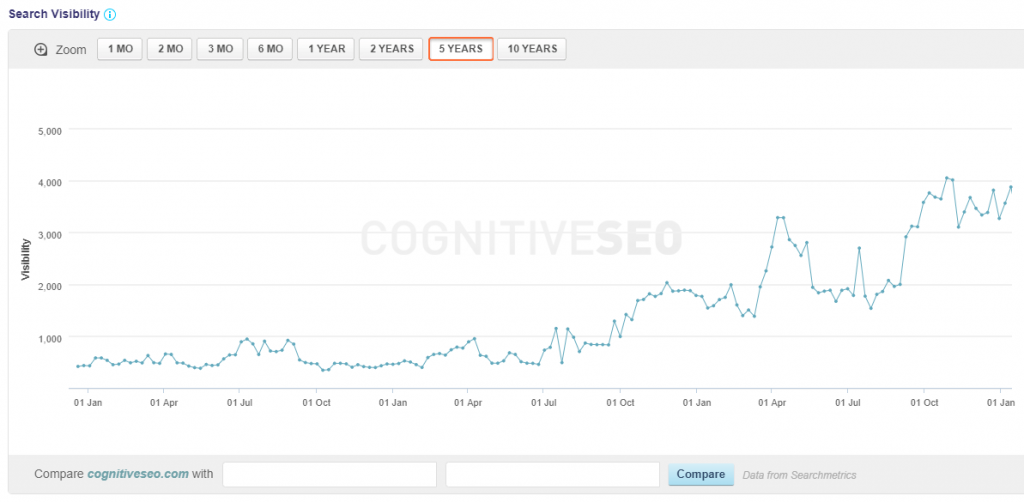
(I admit that I gaze at this chart from time to time when my motivation is gone, or I procrastinate too much.)
Yes, we also used our Content Optimizer a lot and it worked great for us. But we were consistent most of all.
We published frequently and we optimized everything for each and every article, be it an in-depth research or a short case study.
And it did pay off.
Originality Is Good, but so Is Content Update
Coming up with original ideas is no doubt key to progress. But so is updating existing ones, despite being less glamorous.
Gaining knowledge tends to happen in small and uncertain steps, rather than in leaps and bounds. Part of the process is refining and testing existing knowledge. Which is why we’ve often opted to update articles and research rather than start from scratch.
And it turned out to be a very good decision. We even made an article on how content optimization increased our SEO visibility big time.
The results are summed up in the chart below.
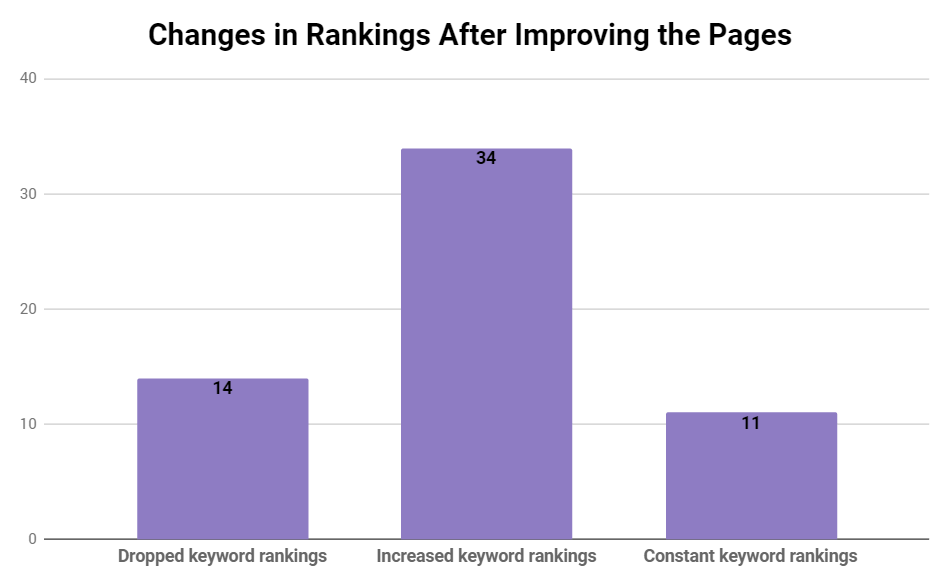
You surely have articles that are not relevant anymore. Or research you’ve worked so hard on, but now it is not bringing anything in terms of traffic.
Instead of letting them rot, try to resuscitate them, if it makes sense. You’ll win more traffic and improve your overall blog quality.
Worst case scenario, this strategy won’t bring you much more traffic but at least you’ll have your blog articles up to date.
Google Algorithms Come and Go, Quality Content Stays
This is similar to the one hit wonder music bands.
We all remember the musical hit, we sing it at birthday parties for a period of time, yet we probably won’t buy the album just for that tune.
Same thing may happen to your content. If you want your readers to look at your blog/brand/name with respect and put you in the trustworthy content category, make a habit out of delivering quality.
As the saying goes, we are what we repeatedly do.
Excellence is not an act, but a habit.
You’ve written a blog post and you have thousands of shares and appreciations? That’s a great. Yet, that one-time performance won’t keep you on the top for long. On the contrary, once you’ve set the bar high, you need to keep up with it to have killer content.
And yes, Google Updates are a harsh reality. Yet, we have thousands of readers, clients, users, and it rarely happened for very good quality content to be penalized.
We’re not saying that it didn’t happen. Unfortunately, we’ve seen good quality being penalized. Yet, take this as a prevention measure.
If a policeman stopped you in traffic, would you be super confident that you did nothing wrong, or would you feel a bit panicked as you know you probably broke a few rules here and there?
Same with content and updates. I know, it’s waaaaaaay easier said than done, but try to write content in such manner, that if a quality update pops out, you won’t feel that scared.
But don’t take our word for granted. Here’s what Google says about what you should do when they update their algorithm.
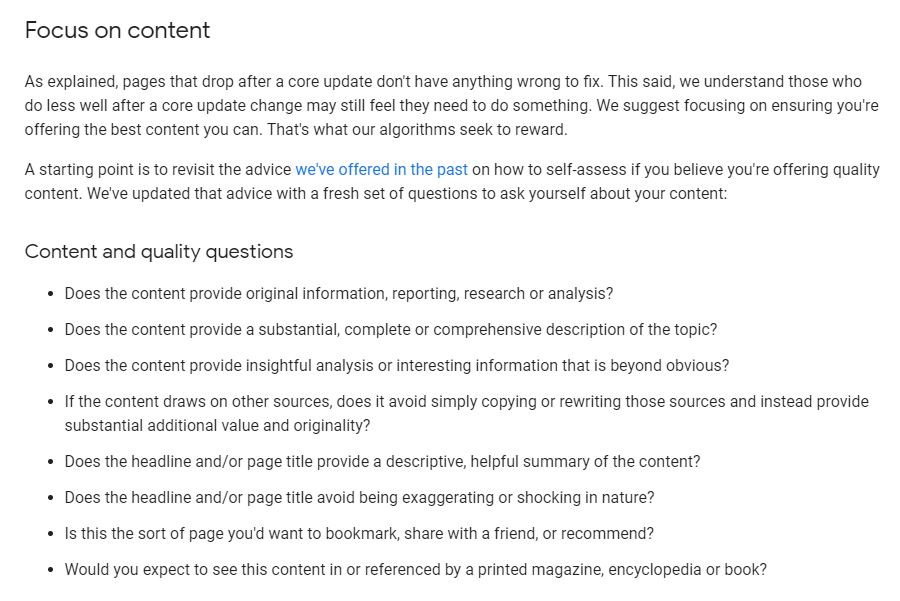
Creativity Is A Lot of Hard Work
The famous American television and radio host Larry King used to say to his audience a very witty story about his father.
He says that his father, of Ukrainian origins, came to the US thinking that America was the greatest land of all, where even the streets were paved with gold. However, shortly after arriving, his father realized three things:
- The streets weren’t paved with gold.
- The streets weren’t paved at all.
- He was the one to pave the streets.
There’s a dangerous cliche about creativity being the sort of lightning in a bottle phenomenon, young hip creatives staying late at night and coming up with wild ideas out of thin air. And that’s… definitely a more exciting version than reality.
But the truth is that so many times creativity is time and patience and incremental progress.
And it’s a collaborative effort more than it is an individual one. Ultimately, you discover there is truth in the adage that spontaneous things take a lot of preparation.
Don’t pressure yourself in being creative 100% of the time. You might be creative most of the time, without even noticing.
And we know it’s easier said than done but even if you don’t feel like, start writing. Just start, and the rest will follow.
Larry’s King father was a great man, we’re sure of it. Yet, as inspirational as these success stories are, this is what they tend to remain: stories.
Of course, not all of them. Inspiration exists, but it has to find you working.
Questions Are More Useful than Answers
We’ve asked a lot of questions along the years and we haven’t always been able to answer all of them.
Understanding the right question to ask is, more often than not, the more challenging task.
Getting access to large amounts of data is no longer a serious problem. What to do with the data will largely remain one for years to come.
So, whenever you want to perform research, or elaborate on some stats, please remember: it’s not just that statistical interpretation and analysis requires a certain skillset. There are also strategic and sometimes even ethical choices to be made about how to frame the results or even what to look at in the first place.
Over the years, we have performed research on billions of data points. And no, there is no exaggeration here. Literally billions of data points.
Each and every time we started having a question in mind we wanted to get an answer for; yet, almost each and every time we realized along the way that we had asked the wrong question.
Of course, this is the beauty of research. But don’t be too proud when performing research. Even if your computer blocks after tens of Excel documents open, even if your stats software crashes, never ignore the other questions that will pop up from the research.
Take from instance this research on the infuence of Title and URLs on rankings. The initial plan was to analyze a few hundred article titles and see if and how a title can influence rankings.
We ended up analyzing 35k keywords in both Titles and URLs because we realized that what we should actually look for is the importance of a keyword’s occurrence in a title, URL, domain, subdomain and URI.
And as you can see in the chart below, in some cases, that huge amount of analyzed data told us…well…nothing relevant. Yet, it was still worth discovering it.
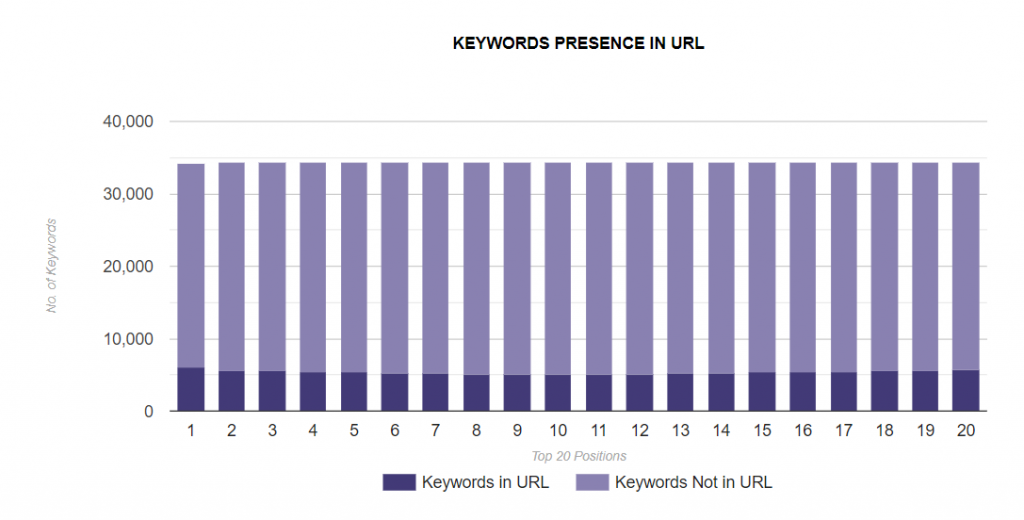
Forget Academic Writing
We’re going to keep this short. When we talk about academic writing, we don’t necessarily mean scientific articles.
But there’s a certain rigor to that writing which might not appeal to the general audience. This is not to say you should dumb things down.
There’s a simple, two-step approach for making this happen:
Read what you’ve written out loud. If some parts don’t sound like something you’d say to a friend in real life, then change it.
Solve Your Readers’ Problems, not Your Dilemmas
A lot of content comes from wanting to share experience. You know something most other people – even those in your field – might not know. You are excited about that and want to make them aware of your newly gained wisdom. The important thing to remember is that the focus should stay on sharing and not on you as the source of wisdom. That’s not to say your opinions have no place in your writing, on the contrary.
But always ask yourself these 3 questions:
- Will this info help my readers better understand the subject?
- Will this info help my readers better apply this knowledge for doing something practical?
- Will this info help me look cool but not add anything valuable to this piece?
If the answer to the first two questions is a resounding “Yes”, then you should definitely include that piece of information in your copy. If the answer to these questions is “No” and the only “Yes” comes from the third question, well… you’ve got yourself a pretty good conversation opener for the next party.
The Title of the Article Will Influence Its Performance
We’re not talking here only about the fact that keywords used in the titles of your copy have a high ranking importance. We’ve conducted a study where it seems that keyword appearance in the title makes a clear difference between ranking 1st or 2nd. But also about the “catchiness” factor. And no, I am not talking about click bite titles, but about titles that are relevant in your industry.
We’ve published so much, and some content registered success while some didn’t, but one thing is sure: if it has anything related to Google in the title, it’s going to perform pretty well.
When comparing any study, research, opinion article that we’ve published to one that has “Google” in the title, chances are that the latter will get the most traffic, shares, links, etc.
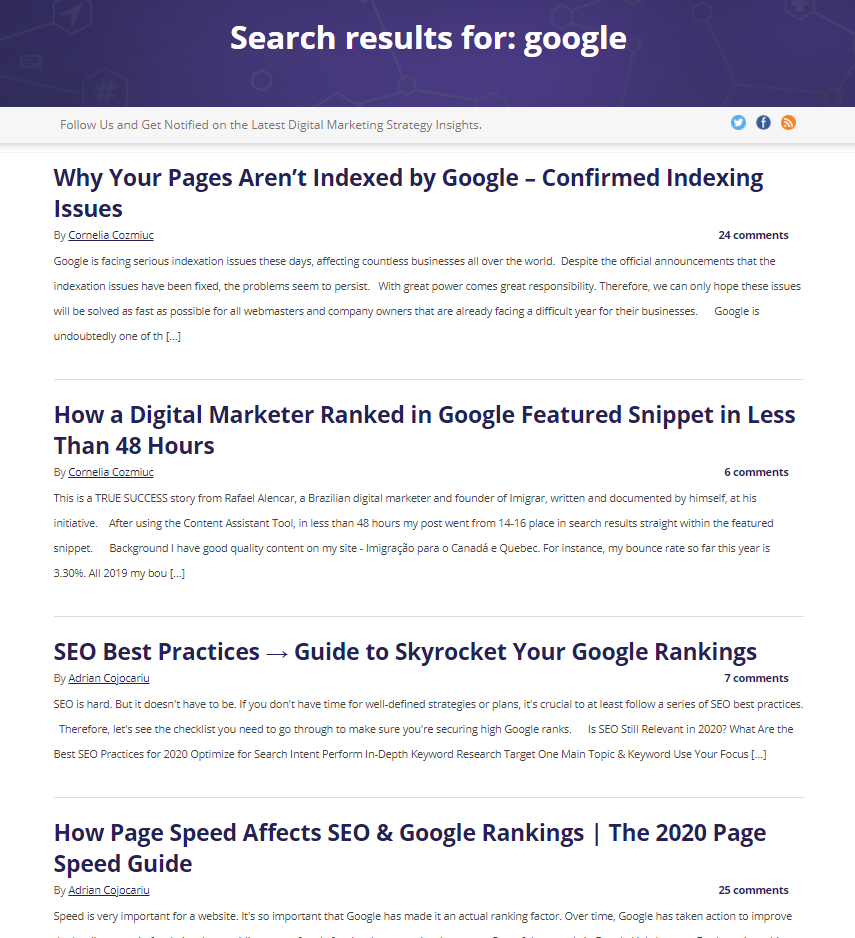
So, you might be thinking: why don’t you add “Google” in all titles? And now we come back to the previous points mentioned here: we don’t want to do click bait only; we want to be relevant, to offer quality and respect for our readers.
When creating the title of your content, you should really think things through, as the title must not be only relevant and attractive but also SERP friendly.
Write Less but Write Better
I am sure you’ve noticed this as well for years: fluff content in most of the industries (especially digital marketing).
There seems to be very little focus on SEO, audiences, conversions, and how articles/content will be helpful for the readers. All of these things should be figured out BEFORE you write anything. It is obvious when something was written strictly for an SEO goal;
Without value, fluff content isn’t going to help you even if you rank well for it.
There is no reason to create content so that you have it. You have to plan each piece of content based on which audience(s) you want to reach, what goals you have for each piece of content, how you will use it in social media to further your goals, and how you are hoping to rank.
This takes a lot of time and effort, but it is better than wasting time and resources on content that brings nothing to your company. Without showing the ROI for your work, your job becomes expendable.
Write Less, Promote More
Don’t neglect content promotion. You might be overly focused on content marketing processes. And that’s definitely a good investment!
However, a lot of content marketers tend to skip the steps related to content promotion. We know, we did.
Without promotion, the majority of your work never reaches your targeted audience.
We recommend writing less and devoting more time to content promotion. Start your content plan by writing a list of channels and influencers that can help you reach more relevant users and will allow you to start getting traffic and leads from each published post.
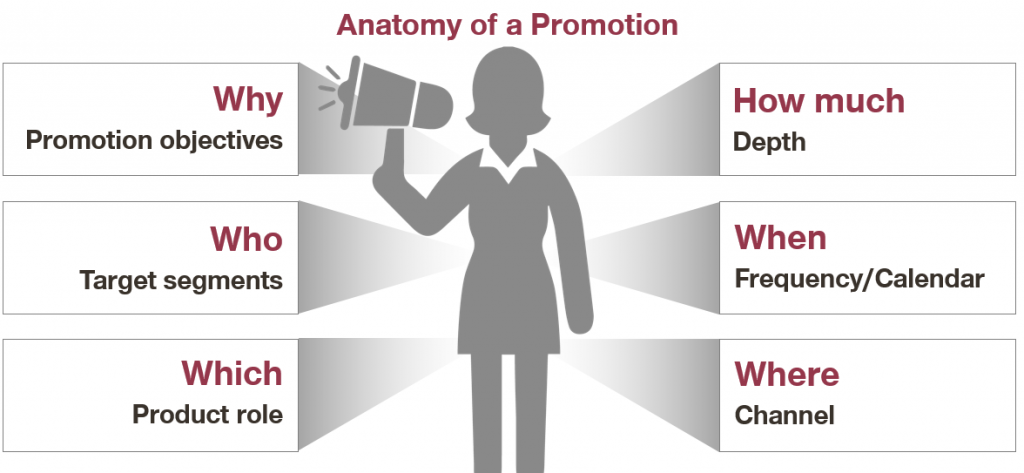
source: multichannelmerchant.com
Stick to Your Principles
There will be many cases when you might be tempted to write click-bait articles or write just for the sake of writing, without offering real value.
Because you’ll be looking at your competitors, and you’ll see that they might get results even with not-so-qualitative content. You’ll invest time, money, and nerves in well-documented researches that will not always perform the way you want. You will get angry, and you will swear you won’t spend another night trying to bring quality to the Internet world.
I am sure this happens to any content writer at least once. Yet, if you do stick to your principles, if you do invest time and quality in each and every article you write, it does pay off. These are not just empty words. Long time effort in content writing does pay off.
Don’t write anything you wouldn’t read.
There are no easy gains, indeed. Yet, what matters at the end of the day is to have good long-term performances.
You might have read this article thoroughly, or you’ve just browsed the main titles, saying to yourself: I knew that. Knowledge is power. But what matters at the end of the day is what you do with that knowledge. All the actions you perform daily define who you are as a person, a marketer, or a business owner. So make sure your actions have an impact on something, no matter how big or small.
The Canadian writer Margaret Atwood once said that the internet is 95 percent porn and spam. So, let’s make that 5% be damn good.




